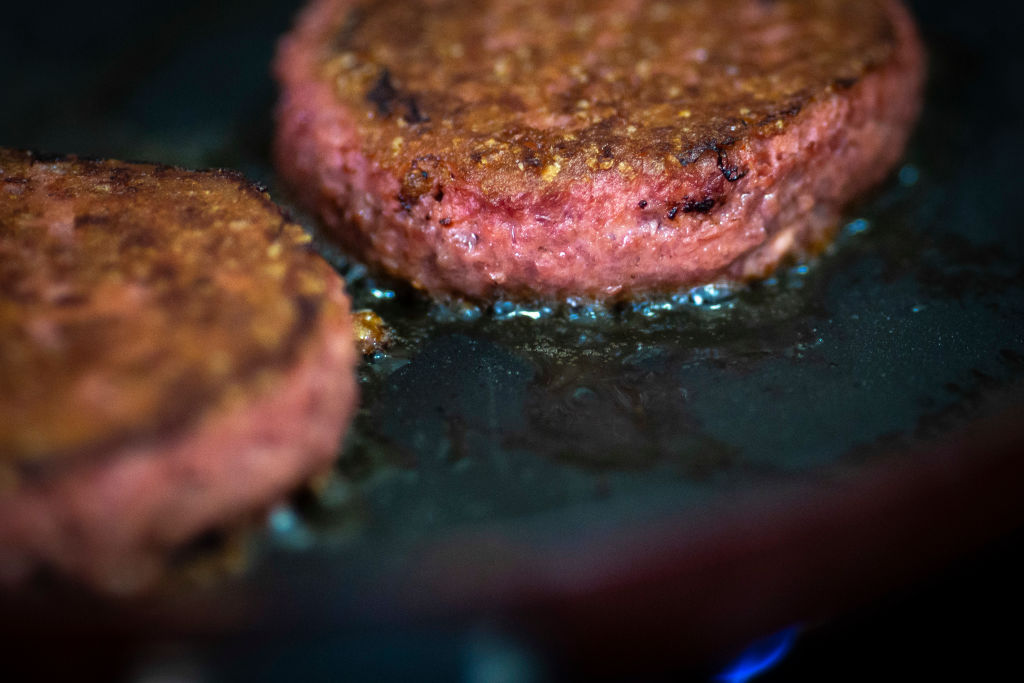Let’s be honest, we might actually save the climate with lab-made meat alternatives

Wanna save the planet? Lab-made meat could be a good place where to start, writes Matthew Lesh
The conversation turned to travel during an awkward first date a few years ago. “I refuse to fly because of the environment,” he told me. “A recent trip to Sweden by train only took 24 hours.” I immediately raised an eyebrow: a trip back to visit my family in Australia without a plane would involve the Trans-Siberian railway or the Suez canal. There was no second date.
Many in the environmental movement embrace this kind of puritanical attitude. They think the only righteous personal response to the climate crisis is to give up air travel, never use plastic, turn vegan and cycle everywhere. The only government response involves taxes and bans, often couched in Orwellian language around “enabling” consumers to take “concrete actions” for the climate.
Some people are very willing to make lifestyle sacrifices. But it’s foolish to presume that this alone will make the real difference.
Let’s take the case of meat. Livestock farming is responsible for about 15 per cent of human-induced greenhouse gas emissions. It also involves substantial land use, deforestation, habitat and biodiversity loss, pesticides, and pollutants. Not to mention the mistreatment of animals in industrial processes and health and food security risks, including disease and antibiotic resistance.
All of these downsides have been known for a long time – so then, what’s happening with meat consumption? It has quadrupled since the 1960s. It is expected to keep increasing over the coming decades as countries climb the development ladder. Even here in Britain, only 5 per cent of people identify as vegan or vegetarian. Studies suggest that the intention to reduce meat consumption rarely translates into behaviour change. Meat taxes are condemned for hurting the poor and are deeply unpopular.
Even if we feel we should resist our carnivorous urges, we don’t. But perhaps all hope is not lost. Cultivated meat is an alternative protein, produced in vitro using animal cells, that can replicate conventional meat’s sensory and nutritional profile. The first cultivated product was approved for sale in Singapore in 2020, while the United States Food and Drug Administration has just done the same.
We are in the foothills of a food revolution that could significantly alleviate the environmental and animal welfare links to livestock farming. But there’s a catch. Red tape risks delaying, if not preventing, this opportunity in the UK and EU. The novel food regulations, retained in UK law after Brexit, embody the precautionary principle. As a result, it takes an average of 35 months and hundreds of thousands of pounds to get approval; it is unclear what is expected, and an application can be delayed indefinitely. This uncertainty risks sending British innovators away, to other jurisdictions.
There is a long history of new technologies making older ones obsolete. The motor vehicle replaced the horse-drawn carriage, saving city streets from piling up with – literal – faeces. Plastic replaced ivory, saving elephants. Petroleum replaced whale oil, saving the species from extinction. Lab-grown meat could replace livestock farming, saving – or at least playing a part – our environment from such a high percentage of greenhouse gas emissions. It’s surely the kind of innovation even people not willing to travel to Scandinavia by rail could get behind.